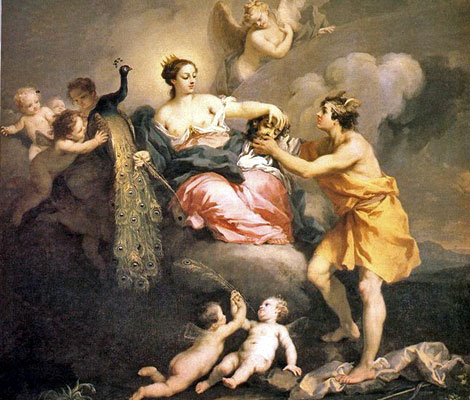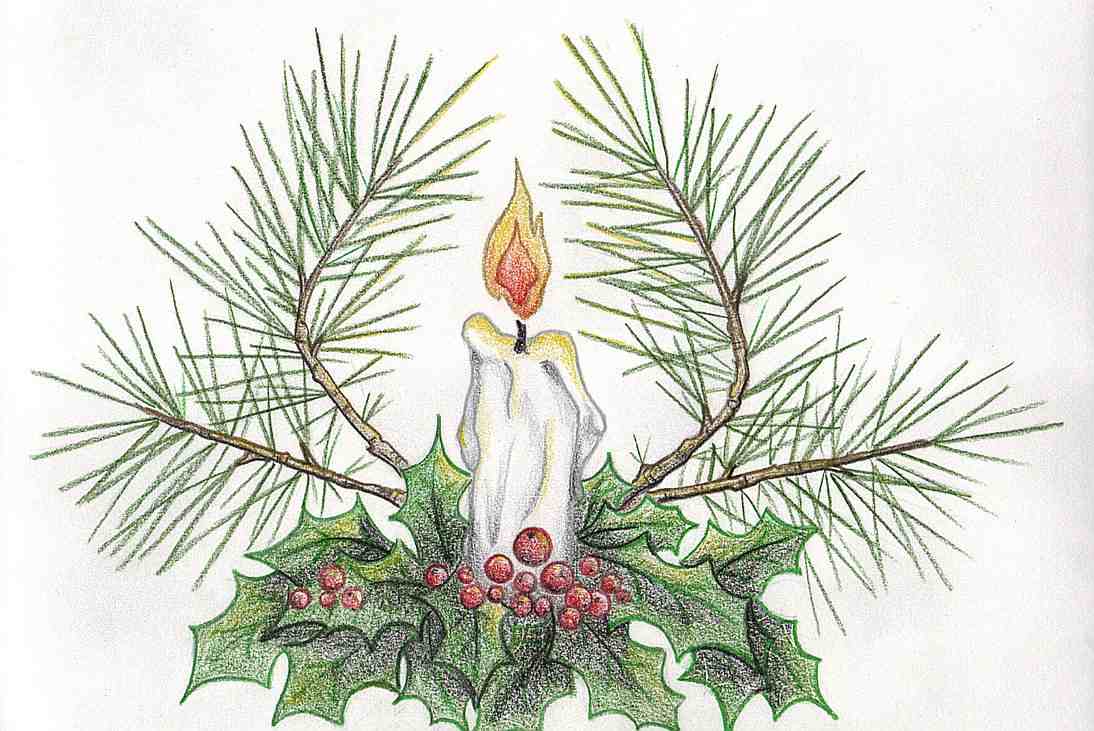In ancient Roman religion, the Matronalia (or Matronales Feriae) was a festival celebrating Juno Lucina, the goddess of childbirth (“Juno who brings children into the light”), and of motherhood (mater is “mother” in Latin) and women in general. In the original Roman calendar traditionally thought to have been established by Romulus, it was the first day of the year. As the first day of March (Martius), the month of Mars, it was also the Feriae Martis.
The date of the festival was associated with the dedication of a temple to Juno Lucina on the Esquiline Hill circa 268 BCE, and possibly also a commemoration of the peace between the Romans and the Sabines. On the day, women would participate in rituals at the temple, although the details have not been preserved other than the observation that they wore their hair loose (when Roman decorum otherwise required them to wear it up), and were not allowed to wear belts or to knot their clothing in any place.
At home, women received gifts from their husbands and daughters, and Roman husbands were expected to offer prayers for their wives. Women were also expected to prepare a meal for the household slaves (who were given the day off work), as Roman men did at the Saturnalia.
Patti Wigington at Paganwiccan.about.com wrote this nice little description about Matronalia.
This annual “festival of women” was held in honor of Juno Luciana, a goddess who watched over married women and those in childbirth. This aspect of Juno was associated with childbirth. The name lucina was thought to have come from the Latin word lux (light); thus, when a child was born it was said to have been “brought to light”.
In this aspect the goddess was a lunar deity, often paired with Diana and depicted as holding a torch. In the worship of Juno Lucina, women untied knots and unplaited their hair – sympathetic magic to prevent entanglements in the delivery of babies. She was in charge of newborn infants, and a woman in labor might make offerings to her so that she would have a safe delivery of a healthy child.
Women and girls prayed to her and brought offerings for prosperity in marriage. Gifts were exchanged, people feasted on similla, cakes decorated it with 12 balls of marzipan around the edges. and everyone treated the ladies exceptionally well on this day. Cakes with a similar name, simnel cakes, are associated with Mothering Sunday in England from which Mothers’ Day is derived.
Children of all ages were expected to pay a formal visit to their mothers and to bring a Simnel cake as a gift. In return, the mothers gave their children a special blessing. This custom was so well-established that masters were required to give servants enough time off to visit out-of-town mothers – provided the trip did not exceed 5 days!
Juno was the Roman Mother Goddess, known to the Greeks as Hera, and her original name to the Romans was Junonius. Juno is a counterpart of Janus and the divine watcher over the female sex, so this month is considered the best time to marry. As Juno Moneta, guardian of wealth and money, she had a temple on the Capitoline hill in Rome where the empire’s coins were minted.
Among Juno’s attributes, she is queen of heaven, approximating Frigg in the Northern Tradition, and Mary in the Christian. She is ruler of the high point of year, when there is maximum light and minimum darkness (the northern Summer Solstice).
Later on, Matronalia evolved into Mother’s Day in Europe, and was shifted to the fourth Sunday of Lent. During the Middle Ages, those who had moved away from home would return on this day to their “mother” church, visiting their families who still remained in the village. Servants were allowed to pick flowers from their masters’ gardens, and given the day off to return home; hence, the custom of bringing one’s mother some flowers on Mother’s Day.
In the United States, Mother’s Day actually falls in May, and is held in honor of humanitarian work carried out by women during the Civil War.
Krazelna: Day of Hekate
Krazelna: Day of Hekate
Krazelna: Day of Hekate
Rachel V Perry: Emancipation Day
Rachel: The Nemesia




Leave a Reply